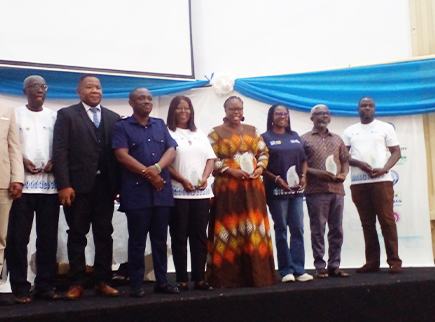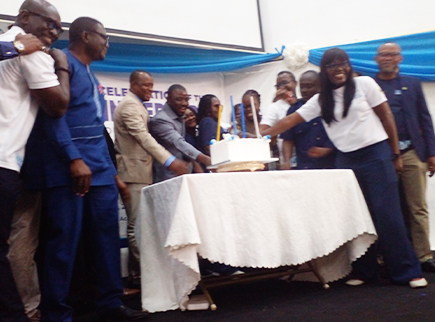Dr Osman Tahidu Damba, the Secretary-General of the Ghana Commission for UNESCO, has urged the government of Ghana to invest in science and innovation to ensure all-year round access to clean water across the country.
He underscored the need to safeguard the water resources in the country to ensure their preservation and sustainability.
“Together, let us secure our water and make it resilient, inclusive and sustainable. One of the things I want to talk about is that when you talk about 24-Hour Economy, we have to also make sure access to water is 24 hours,” Dr. Tahidu Damba pointed out.
Dr. Tahidu Damba made the observation during a public forum to mark the 50th Anniversary of the UNESCO Intergovernmental Hydrological Programme (IHP).
The golden jubilee celebration was on the theme: “Science for a Secure Water World in a Changing Environment”.
The theme highlights the essential role of translating scientific knowledge into actionable solutions to tackle critical global water challenges.
Mr. Kenneth Gilbert Adjei, the Minister of Works, Housing and Water Resources, in a speech read on his behalf, urged traditional authorities, academia, and civil society organisations, to join the public campaign to promote sustainable water practices across the country.
The Minister expressed concern about the alarming rate of water pollution in the country due to the activities of illegal mining
He called for collaborative efforts by all stakeholders in the water management system to adopt a scientific approach towards sanitising the water resources in the country.
Professor Seidu Mahama Alidu, the Executive Secretary, Water Resources Commission, who chairs the Ghana Committee for UNESCO Intergovernmental Hydrological Programme(IHP) highlighted UNESCO’s contributions to water resource management in Ghana since 1975.

He said since the establishment of the Intergovernmental Hydrological Programme for UNESCO in Ghana, the Committee served as a vital link between the national interest and global objectives of ensuring every household get access to clean water.
In view of the changing climate, increasing youth population and urban demand for clean water, Prof. Alidu advocated the need for collective efforts and innovative solutions in water resource management in the country.
The Intergovernmental Hydrological Programme is one of the United Nations systems dedicated to water research and management and related education capacity development, supporting and developing resilient society.
Out of 196 UNESCO countries, the IHP can be found in 170 countries.
In Ghana, the Water Resources Commission is the focal institution and supported by 14 others, including the Community Water and Sewage Agency, Water Research Ìnstitute of the Council for Scientific and Industrial Research; and Coalition of NGOs for Water Resource Management and Volta River Authority.
He said the five decades milestone was not only to celebrate the IHP, but years of impactful contributions, which also aligned with the 60th anniversary of UNESCO’s commitment to advancing water sciences.
The IHP has been instrumental in promoting research, fostering collaborative practices, and enhancing water resource management worldwide by bringing together scientists, policymakers, and local communities.
The Ghana Committee aimed to commemorate 50 years of success and to raise awareness, enhance education, and engage youth, women, and stakeholders within Ghana’s water community.
Some past chairpersons of the Ghana Committee for Intergovernmental Hydrological Programme were awarded for their meritorious service to the nation.

